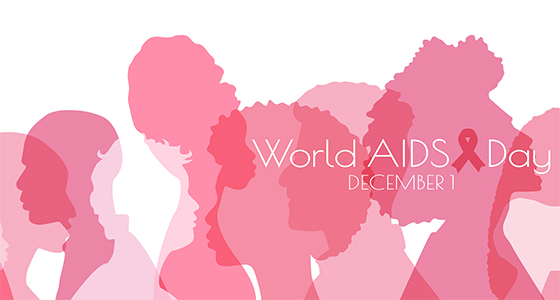
I would like to acknowledge the traditional owners of the land on which we meet, the Gadigal people of the Eora nation, and pay my respects to their elders, past, present and emerging, and any Aboriginal or Torres Strait Islander people present with us today. Sovereignty was never ceded, and always was, and always will be Aboriginal land.
World AIDS Day has been held internationally every year on the 1st of December since 1988 to raise awareness of HIV and AIDS and was the first ever global health day conceived as a way of highlighting the enormity of the AIDS pandemic and the responsibility to ensure access to universal treatment, care and support for people living with HIV and AIDS.
On this World AIDS Day as people living with HIV, we give ourselves permission to reflect and also to publicly acknowledge our grief and the losses we’ve suffered. It is also an opportunity for people to unite in the fight against HIV, to show support for people living with HIV, and to provide our communities a chance to acknowledge, remember and commemorate those we have lost to the virus.
This year marks the 40th anniversary after the first AIDS case were reported in the United States. There, in the 1980s, HIV hysteria was driven by misinformation regarding transmission, homophobia, class warfare, and racism. In 1985 for example, a Los Angeles Times survey conducted among 2,308 adults, found that 77% of respondents thought it should be a crime for gay or other at-risk groups to donate blood; 51% responded that it should be a crime for an AIDS patient to have sex and that people who tested positive should be quarantined; and 48% supported identification cards for people who tested positive.
In the early years of the epidemic, Silence=Death was a powerful slogan that moved people beyond the taboos of talking about sexuality, health and access to treatments. It channelled the anger and rage against recalcitrant political administrations during the early 1980s. While this wasn’t strictly the experience in Australia, this lethal silence fuelled fear within people and our communities about HIV and was reinforced by discriminatory treatment which resulted in the premature deaths of many people living with HIV at the time, though suicide, non-disclosure, and refusal of access to health services or medicines. Sadly, this trend continues today in marginalised populations even now.
We are all here today because HIV has impacted us, and I think about how all of our lives might have been had HIV/AIDS not come along….
What would it have been like if we had all that talent, experience, energy, creativity and political nous still amongst us? Would our culture have been different and more vibrant – I wonder? Certainly, many of our lives would have been unrecognisably different.
Different partners, different careers, different friends, maybe even a different country of residence, and definitely a quite different perspective on our own health and wellbeing.
One thing is certain however; no one can live in a state of permanent grief and loss. So we choose, and must choose, to live positively and look forward to the future, and with hope. And there is much to be hopeful and grateful about. Modern medicine has provided us with the ability to live, to love, and to contribute. We’ve gone from a time of dying to a time of living.
Amongst us are people who have lived with HIV for 40 years, and as we live longer and grow older with HIV we must learn from and respond to how the virus impacts us over time. I am hopeful we will get to see an end to HIV transmission in NSW. But it’s not all about ending HIV transmission, and we need to remember that…! Language is important and while it is becoming increasingly likely we will see an end to HIV transmission here in Australia, we need to remember that for people living with HIV, we won’t have ended HIV.
As people living with HIV, we are all diverse and our experiences are different. What connects us is that HIV has shaped us indelibly. HIV will continue to shape and challenge us into the future, and like the virus itself, those challenges change over time.
We must confront how living with HIV can be experienced differently because of gender, sexuality, age or geographical location. We must also confront the relationship between HIV and poverty, and HIV and our mental health. Increasingly, we will need to address the emerging problems of age, of multi-morbidity, of poverty and loneliness, and ensure that those who haven’t benefited fully from medical and economic progress, are supported to live out their lives in the community in a meaningful and inclusive way. This is all about quality of life. I am particularly pleased therefore that the Australian government has announced today that it is contributing $39million to ensure access to HIV antiretroviral medication for all in Australia, regardless of Medicare eligibility.
If we want to be viewed as a community that cares, who behaves in an ethical, responsible and responsive manner, we must also continue to confront the challenges of HIV related stigma and discrimination. We need to acknowledge marginalised communities of people living with HIV, and face the reality that not all people living with HIV are doing as well as we might want to believe.
We must continue to build the resilience of our community, and we must continue to value our peers and the strength of our shared experience. And we must ensure that whether diagnosed 40 years ago or diagnosed today, nobody living with HIV is left behind.
If we can do this, we will in some way honour the lives of our dead brothers and sisters who fought for dignity, for inclusion, for justice and for life.







